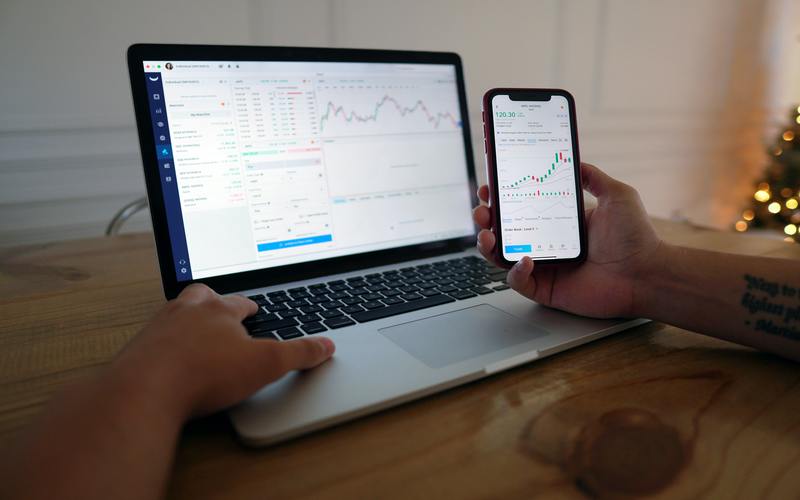Public interest in shares and investing skyrocketed through 2020 and 2021, with the corporate regulator revealing last year that daytraders more-often-than-not lost money when trying to 'time the market'.
Co-founder and director of Global Prime Brokerage firm, Jeremy Kinstlinger, believes identifying the pitfalls made by new investors is more relevant than ever. He identified the top six mistakes new traders make:
1. Not understanding the risks involved
Trading involves risk of capital loss, especially when trading leveraged products. If a trader goes in without a good understanding of risk management they are more likely to lose.
"Risk management is everything, you've got to go in with a plan," Mr Kinstlinger said.
"Popularity in online trading has risen, but without understanding the risk, many are finding themselves way out of their depth in an exciting and challenging new world."
2. Being afraid to ask questions
"There are simple questions you can ask your broker to make sure they know you are going to hold them accountable," Mr Kinstlinger said.
"'Did you profit off my loss' or 'can you share the automated trading receipts with me' will make it clear you want transparency from your broker.
"Keep in mind that if a broker doesn't offer trade receipts showing they were not on the other side of your trade you won't know for sure if they are profiting from your losses."
3. Not placing enough emphasis on the psychology of trading
Mr Kinstlinger believes a new investor can have the best strategy in the world, but without the right mindset a trader is bound to lose eventually.
"I think are most important is understanding the psychology of yourself, because if you can't sit on your hands and kind of take a step back and not be impulsive with your trading, you're bound to lose eventually," he said.
"A trader needs to be cool and calculated and not adjust their trading based on their emotions. Unless a trader has learned to manage their impulses and emotions, they will most likely run into problems."
4. Not having the right guidance and mentoring
It’s information overload online when it comes to finding a strategy to trade with.
A trader must find a strategy that works for them and their circumstances, and it can be tough for a beginner to sift through the information and formulate a plan.
Having a great mentor can really help push a trader in the right direction, and if they take it seriously they can be held accountable to their trading mentor as well, just like a sporting coach.
"I think if you're going to ever trust your investments in somebody else, you've really got to get just really detailed proof of their past successes and their performance," Mr Kinstlinger said.
5. Trading without a plan or strategy in place
Having a set plan and strategy in place and journaling trades helps to stick to the plan which means not making decisions on the fly.
"Going into trades with a plan, knowing when you're going to get into the trade and out of a trade and how much you're willing to lose each trade, is huge," Mr Kintslinger said.
6. Not choosing the right broker
Most traders learn the hard way to steer clear of high-pressure tactics, deposit bonuses or incentives.
If a broker is trying very hard to get a beginner on board it's usually not a good sign as most profit from trader losses and won’t have the trader’s best interests at heart.
Traders will want to find a well-regulated broker with a personal support team, good pricing, and execution of their trades as well as public access to the founders or upper management in case they run into issues.
Mr Kinstlinger said that knowing the risks before trading is a must for any new investor but ultimately they have to invest in their own understanding.
"The more you invest in yourself and your understanding of it that the more likelihood you have of success," he said.
Image by Joshua Mayo on Unsplash



 Denise Raward
Denise Raward

 Harry O'Sullivan
Harry O'Sullivan
 Aaron Bell
Aaron Bell
 William Jolly
William Jolly

